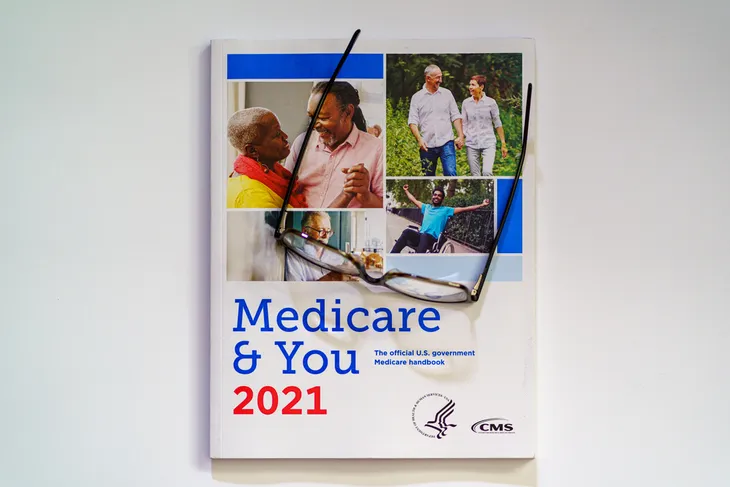The Medicare Open Enrollment Period for 2022 coverage is open from October 15 to December 7, 2021. During this time, seniors can opt into or alter their Medicare insurance for the year beginning January 1, 2022. This is the time for American seniors to review their current coverage plan and decide if they need to make any changes.
Insurance policies can be difficult to read and even more difficult to understand. We have taken the time to break down all of the important changes for the upcoming year and tell you everything you need to know about Medicare in 2022.
What is Medicare?
Medicare is a national health insurance program in the United States for Americans over the age of 65 and younger people with disabilities or special health complications. Medicare insures around 60 million Americans and covers roughly half of their medical expenses.
Medicare covers most health expenses but excludes dental, hearing, and vision care. Medicare also does not cover long-term assisted living programs.
Who is Eligible for Medicare?
Medicare has certain eligibility requirements that need to be met to qualify for their health insurance. If you are 65 years of age or older and a U.S. citizen or legal permanent resident who has lived in the United States for at least 5 consecutive years, you are eligible for Medicare Part A and Medicare Part B.
If you are an American citizen or legal permanent resident who has lived in the United States for at least 5 consecutive years and are under the age of 65, you might still be eligible for Medicare. If you have been receiving Social Security disability payments for 24 months in a row, have Lou Gehrig’s disease (ALS), or have permanent kidney failure requiring dialysis or a transplant, you are also eligible for Medicare coverage.
What are the Differences in Medicare Plans?
Medicare is broken down into four different plans, each of which offers a different range and level of coverage.
Part A
Part A covers hospital stays. The maximum stay typically covered is 90 days, the first 60 days being completely covered by the Medicare program aside from the initial deductible. The remaining 30 days would be partially covered by Medicare.
There are monthly premiums for Part A coverage, but these are waived if the insured or their spouse has worked 10+ years in the U.S. while paying Medicare taxes.
Part B
Part B Medicare covers most medical appointments or procedures that do not require an overnight stay in a hospital or clinic. While the majority of people with Medicare will not have to pay monthly premiums for Part A coverage, Part B coverage has a monthly premium that must be paid. For 2021, this premium was $148.50 per month.
Part B coverage is optional but there is a penalty for not signing up when you are first eligible should you decide later that you’d like to opt in.
Part C
Part C plans, also called Medicare Advantage, provide the Medicare Part A and Part B coverage through a private sector health insurance company. Part C plans vary greatly but will often offer total coverage as opposed to partial coverage in the Medicare Part A and Part B plans. Part C plans can also include Medicare Part D as well as coverage for things that are omitted from Medicare like dental or vision care.
Beneficiaries of a Part C Medicare plan will receive, at minimum, the same coverage as Medicare Part A and Part B plans, while often enjoying greater coverage.
Part D
Medicare Part D covers prescription drugs. Anyone that has Part A or Part B coverage is eligible for Part D coverage. Part D works similarly to Part C in that it is not a standardized plan but rather is provided by a third party insurer. They are many different approved plans to choose from depending on the specific needs of the beneficiary.
What are the Changes for 2022?
Each year there are slight differences in the plans offered and these are usually accompanied by an increase in the costs of each plan. The major changes for 2022 are as follows:
- Part B monthly premiums will increase from $148.50 in 2021 to $158.50 in 2022. This equates to a yearly increase of $120.00.
- The Part B deductible will increase from $203 in 2021 to $217 in 2022.
- The average monthly premium for Part D plans will increase from $31.47 to $33.00 in 2022.
- Those who do not qualify for the free Part A coverage will likely see their premiums increase as well. American citizens who paid into Medicare taxes for between 30-39 quarters will see an increase from their monthly $259 premiums. Americans that paid into Medicare for less than 30 quarters will see an increase from their $471 monthly premiums.
- The average premium for Medicare Advantage Plans will decrease to $19 per month from the 2021 rate of $21.22 per month.
- COVID-19 vaccines, diagnostic tests, antibody tests, and monoclonal antibody treatments are all covered under Medicare in 2022.
- 2022 Medicare will cover a one-time full cognitive assessment by the beneficiary’s regular doctor.
- Blood-based biomarker tests will be covered in 2022 at a maximum of once every three years.
- 2022 will be the first year that individuals with end-stage renal disease (ESRD) will be allowed to enrol in a plan.
Health care plans are complicated documents that can be easily misunderstood if not read with care. It is recommended to seek advice when choosing the right plan for you and your spouse in this open enrolment period.
How to Save Money on Medicare in 2022?
While Medicare is an affordable health insurance option for seniors, the costs associated with it can add up quickly. There are a few ways, however, that you can make sure that you’re not overpaying for your health insurance, keeping your hard-earned cash in your pocket.
Sign Up for Part B When You Are First Eligible
Unless you plan on never signing up for Part B coverage, you should opt into the coverage when you are first eligible. The reason for this is that if you decide a few years later that you want Part B coverage, you could be charged an extra 10% on your premiums for each year that you declined Part B coverage. Signing up when first eligible will save you the extra fees.
Search for Savings Programs in Your Area
There are programs that provide assistance with health insurance. Medicare has four different savings programs that you might qualify for. If you are eligible for the assistance, it will lower the cost of your Part B premiums. You can contact Medicare directly to find out if you are eligible for any of their savings programs.
Medicaid
Medicaid is available for low-income individuals and people with limited resources. Medicaid can help with medical costs as well provide coverage that is not included in Medicare plans. A quick phone call to one of their representatives can help determine your eligibility.
Extra Help
Extra Help is a program that assists in covering the costs of Part D premiums for low-income and limited resource individuals. If you have already qualified for Medicaid or a Medicare Savings Program, you will be automatically enrolled in Extra Help. If you aren’t in either of those programs you can apply for Extra Help here.
Conclusion
As the season changes and winter sets in, it’s time again to enroll in or change your Medicare plan. Sifting through the policies of each health insurance plan can be extremely tedious and confusing, so it’s recommended that you speak with a professional about what plan might be right for you. As well, don’t forget to check if you qualify for any of the cost saving measures available to cut the price of your Medicare premiums.














